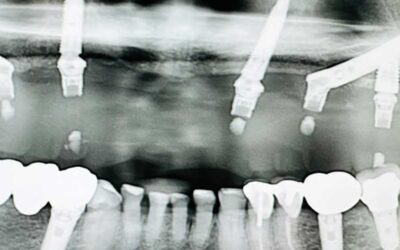What Happens If You’re Missing Teeth: Single and Multiple Implants
Having missing teeth can both be embarrassing and difficult. If you have teeth missing, people automatically assume you didn’t take care of your teeth. Сertainly this can be embarrassing for you. It can be difficult because having missing teeth consequently makes it difficult to chew food, making eating hard and time-consuming. Sometimes, you have so many teeth missing that you even cannot consume whole foods, severely affecting your overall health.
But, there’s an answer to your missing teeth problem. Rather than getting dentures, you can always choose to get single or multiple implants, depending on your needs.
Causes of Missing Teeth
There are many causes of missing teeth. Your health and lifestyle certainly determine the cause. The following are some of the main causes:
- Tooth decay
- Gum disease
- Injury
- Congenitally missing teeth
- Heredity/Genetics
- Systemic diseases
Tooth decay and gum disease are the results of poor dental hygiene. Something like a slip and fall can cause injury,
What are Dental Implants?
Dental implants, both single and multiple, is what we are using to replace missing teeth. There are conventional and holistic options for dental implants made of titanium metal or Zirconia. Doctors surgically place them in the jawbone where you are missing teeth. Dental implants replace the roots of missing teeth. Permanent restorations are the attachment to the dental implants, that look, feel, and even more – function as natural replacements for real teeth.
The Dental Implant Procedure
The dental implant procedure is a surgery that replaces tooth roots where you have missing teeth. The implants are metal or zirconia, screw-like posts to which artificial or “fake” teeth are fastened, that act much like real teeth. The type of implant and the condition of your jawbone determines the performance of the dental implant surgery.
What to Expect During Your Dental Implant Surgery
Dental implant surgery is an outpatient procedure. It is done in stages:
- First of all, your dentist removes your damaged tooth.
- If you experience bone loss and lack adequate bone density to support single or multiple implants, the dentist performs a bone grafting procedure. This prepares your jawbone to receive the implant. After a bone-graft procedure, the patient must recover before we can place the implant.
- After your jawbone heals, your oral surgeon surgically places the dental implant into your jawbone.
- The healing time after the surgery may take several months depending on where the implant is placed. During the healing process, the implant will naturally fuse to the bone, also known as the ‘osseointegration process’
- Once the implant has fused to the bone and the tissue around the implant has healed, an abutment is attached to titanium implants, to which a permanent restoration will later be affixed. In the case of Zirconia implants, an abutment is already a part of the implant, and permanent restorations can be directly attached to the implant, skipping the need for this step.
- Finally, after the soft tissue heals from placing the abutment, your dentist will make molds of your teeth and jawbone. When your molds are ready, the dentist will place the final tooth or teeth.
What to Expect After Your Dental Implant Surgery
After your dental implant surgery, you can expect the same things to occur as with any dental procedure, including:
- Swelling of your gums
- Pain at the implant site
- Minor bleeding
Contact your oral surgeon if you’re experiencing pain and swelling. You may need pain medications and/or antibiotics. You’ll also need to eat soft foods while you’re healing. Usually, your oral surgeon will use stitches that dissolve on their own.
You May Also Like...
How Much Do Dental Implants Cost in Southern California? A Complete Guide
If you're considering dental implants in Southern California, you’re likely wondering: How much will they cost? Are...
Can Zygomatic and Pterygoid Implants Be Done in a Day? Breaking Down the Process
Losing bone in the upper jaw can feel overwhelming, especially if you've been told traditional implants aren’t an...
Are Dental Implants Noticeable?
If you've lost one or more teeth due to periodontal disease, trauma, or other dental issues, you might be considering...



